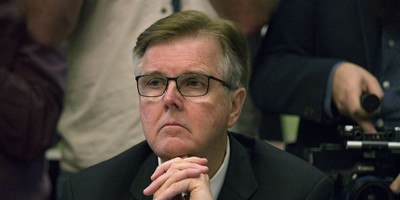Every so often, we get proof that Barack Obama, when confronted with a grievous abuse of government power by his administration, will do the right thing. Sometimes, I mean. When he can't get away with it anymore, that is. Just as soon as he's tried everything else.
That's the case with his domestic phone records collection, which the president finally said he wants to put under tighter control than before. At moments like this, believe it or not, Obama sounds faintly like that guy who ran to replace George W. Bush.
"This administration acts like violating civil liberties is the way to enhance our security," he complained in 2007, while promising to be very different. "We will again set an example for the world that the law is not subject to the whims of stubborn rulers."
But it turns out Obama was not against indulging the whims of a stubborn ruler if that ruler happens to be him. Upon arriving in the White House, he left the Bush-Cheney surveillance programs largely alone. Why? "He has more information than he did then," one former aide confided to The New York Times. "And he trusts himself to use these powers more than he did the Bush administration."
The fact that Obama trusted himself with these powers is ample reason the rest of us shouldn't. But we already had sufficient cause for suspicion. Our Constitution does not show an abundance of trust in elected officials. It rests on the belief that those in power need to be curbed and checked at every turn.
James Madison made the point memorably in The Federalist: "If angels were to govern men, neither external nor internal controls on government would be necessary. In framing a government which is to be administered by men over men, the great difficulty lies in this: you must first enable the government to control the governed; and in the next place oblige it to control itself."
Recommended
Obama, however, lost interest in controlling his intelligence agencies until Edward Snowden let the American public know what they were doing. It then became apparent that the sort of people who have been implementing the Affordable Care Act bear a strong resemblance to those running surveillance -- with the same regard for legal obligations and the same level of competence.
The Foreign Intelligence Surveillance Court, which has been exceptionally tolerant of the National Security Agency's interpretation of its authority, found that no matter how generous the boundaries it set, the agency blew right through them.
It accused the NSA of lying to it about the program, violating the court's guidelines, asking for permission to do things that were clearly illegal, doing "systematic overcollection" and using the Fourth Amendment ban on unreasonable searches and seizures for target practice.
The president should have been aware of all this, but he couldn't be troubled to take corrective action until the phone records collection program became a public embarrassment. Even then, his first instinct was to defend the program and condemn Snowden, which was pretty much what would have happened if John McCain or Mitt Romney were president.
One reason the program put an unflattering light on Obama is that it went far beyond what Congress thought it approved and what the public knew. Another is that it didn't actually do much good.
The top intelligence officials portray their mass vacuuming of phone records as a vital safeguard against terrorism. But independent evaluators have not been convinced they are telling the truth.
Last year U.S. District Judge Richard Leon noted, "The government does not cite a single instance in which analysis of the NSA's bulk metadata collection actually stopped an imminent attack, or otherwise aided the government in achieving any objective that was time-sensitive in nature."
The president's Review Group on Intelligence and Communication Technologies said, "There has been no instance in which NSA could say with confidence that the outcome would have been different without the section 215 telephony metadata program." The independent federal Privacy and Civil Liberties Oversight Board also looked and came up empty.
Now the president says he wants to let the NSA get phone records only for specific numbers and only if the FISA court agrees. That would finally put a significant constraint on this type of domestic snooping.
It would also help to restore force to one of the fundamental premises of American government: Don't trust bad people with unchecked power, and don't trust good ones.

























Join the conversation as a VIP Member